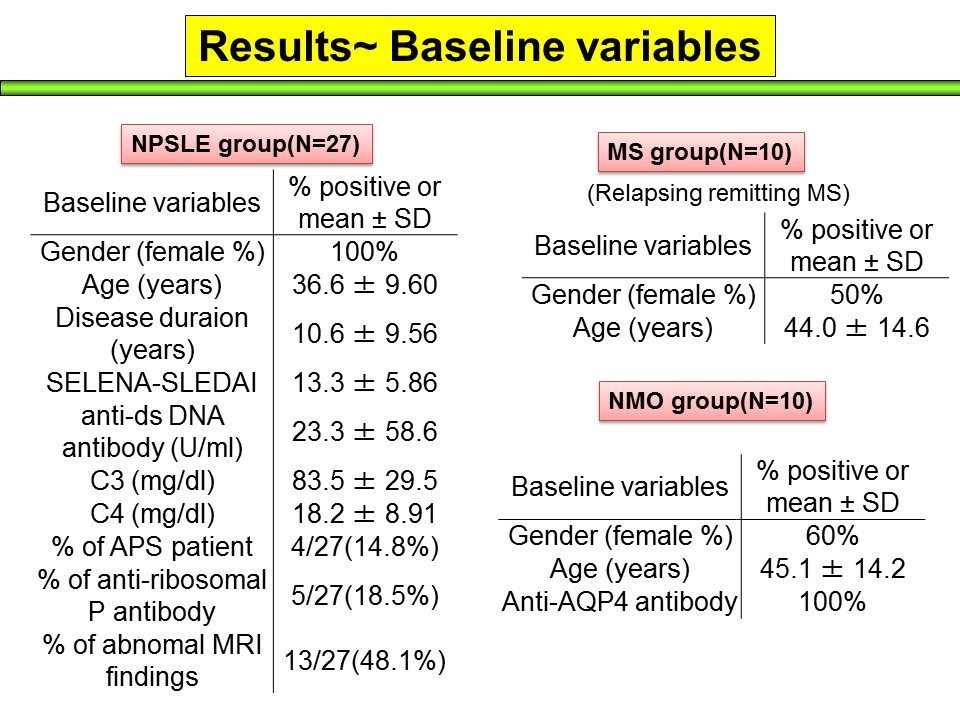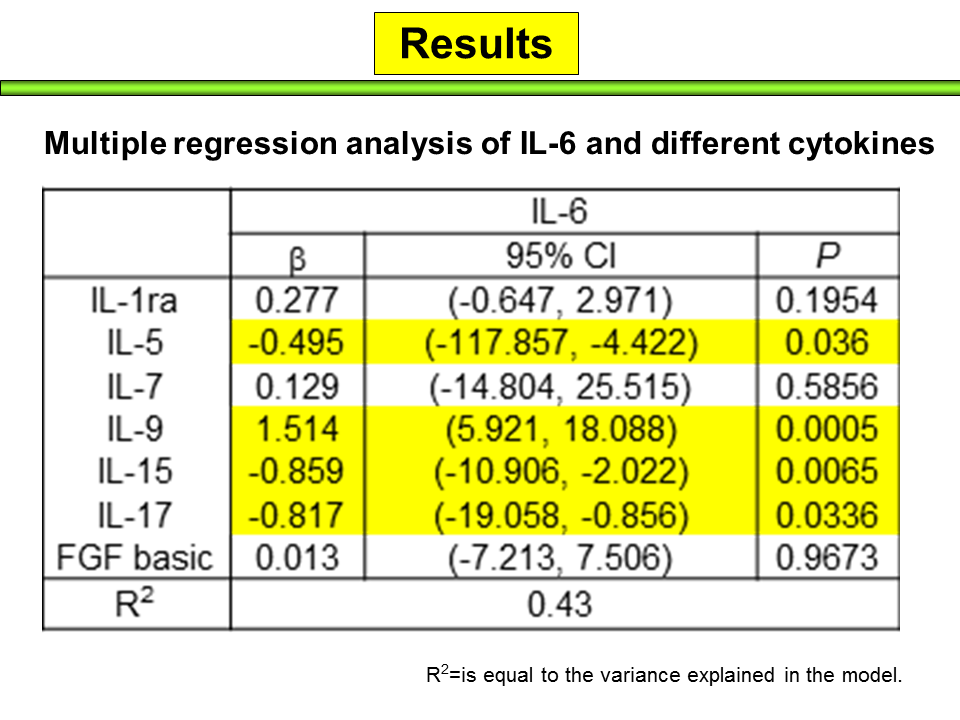Session Information
Session Type: Abstract Submissions (ACR)
Examination of the cytokine profile of the cerebrospinal fluid in neuropsychiatric systemic lupus erythematosus
Background/Purpose: Neuropsychiatric systemic lupus erythematosus (NPSLE) is a serious complication in systemic lupus erythematosus (SLE). NPSLE syndromes involve both the central and peripheral nervous systems. Despite advances in the understanding of the immunopathogenic and clinical aspects of SLE, NPSLE remains a diagnostic and therapeutic challenge.
Methods: We examined the cytokine profile in the cerebrospinal fluid (CSF) of NPSLE patients admitted to our hospital in a 7-year period from 2006 through 2012 and searched for markers that may be useful for the diagnosis of NPSLE. We used the CSF of patients with multiple sclerosis (MS) or neuromyelitis optica (NMO) as a disease control group. We examined 27 types of cytokine, chemokines, and growth factors in the NPSLE group (n=27), MS group (n=10) and NMO group (n=10) using Bio-Plex Pro assays.
Results: All of the NPSLE patients were women. The mean ± SD disease duration of NPSLE was 10.6±9.56 years. The NPSLE patients’ Safety of Estrogens in Lupus Erythematosus National Assessment–Systemic Lupus Erythematosus Disease Activity Index (SELENA-SLEDAI) score was 13.3±5.86, and their anti-ds-DNA antibody level was 23.3±58.6 U/mL. The percentages of anti-phospholipid antibody syndrome, anti-ribosomal P antibody positivity, and abnormality of brain MRI were 4/27 (14.8%), 5/27 (18.5%) and 9/27 (33.3%), respectively. Aside from the cytokines that are known to be related to NPSLE such as interleukin (IL)-6, the concentrations of basic FGF, and IL-1ra, -5, -7, -9, -15 and -17 were significantly higher in the NPSLE group compared to the other two groups. A multivariate analysis revealed that the protein levels of IL-5 (p<0.036), IL-9 (p<0.0005), IL-15 (
Conclusion: In NPSLE patients who do not show IL-6 elevation, it might be advisable to examine other cytokines. The determination of various types of CSF cytokine profiles may contribute to the diagnosis of NPSLE and may help elucidate the mechanisms underlying this disease.
Disclosure:
K. Ichinose,
None;
T. Ushigusa,
None;
Y. Nakashima,
None;
T. Suzuki,
None;
Y. Horai,
None;
S. Y. Kawashiri,
None;
N. Iwamoto,
None;
M. Tamai,
None;
K. Arima,
None;
H. Nakamura,
None;
T. Origuchi,
None;
A. Kawakami,
None.
« Back to 2013 ACR/ARHP Annual Meeting
ACR Meeting Abstracts - https://acrabstracts.org/abstract/examination-of-the-cytokine-profile-of-the-cerebrospinal-fluid-in-neuropsychiatric-systemic-lupus-erythematosus/


